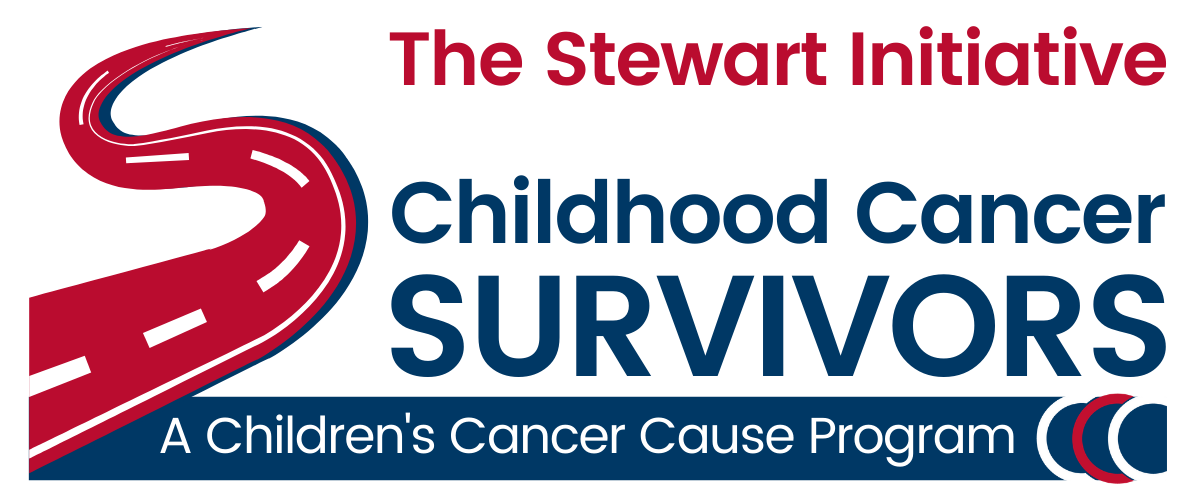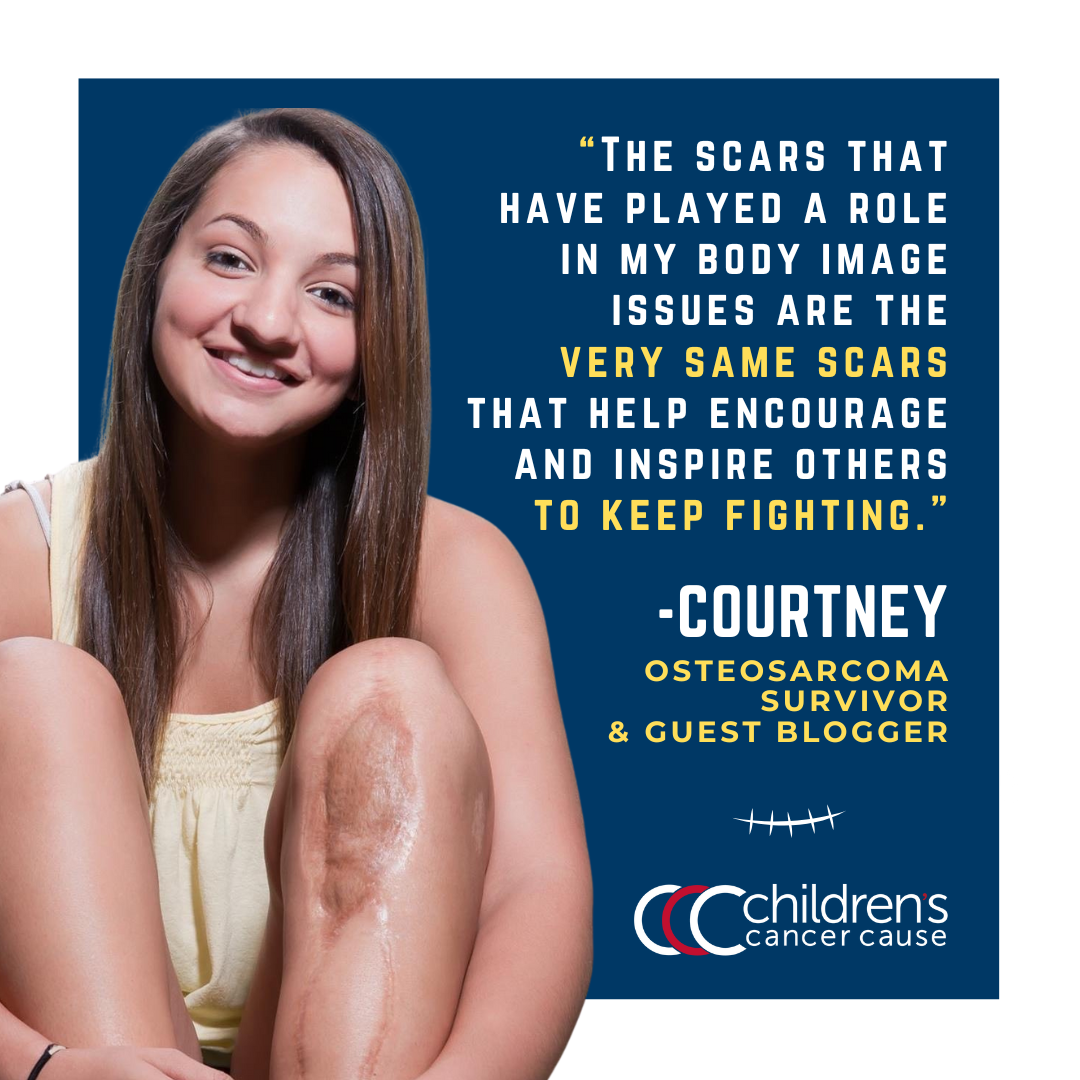These scars tell a story.
In this February 2023 guest blog post, osteosarcoma survivor Courtney writes about the surgery that saved her life and her leg at age ten and her journey with grief, healing, and acceptance of the physical and emotional scars left behind.
“The reality is that cancer doesn’t end when treatment ends. The effects of cancer, whether physical or psychological, are forever.”
You’re Not Alone
Body image goes much deeper than surface-level: it’s how we think about how we look. And our own self-perception influences self-esteem, our social life, and daily behaviors. This is an issue that can impact anyone. Even conventionally beautiful Hollywood stars admit to body image issues. But for cancer survivors, it can be especially difficult to cope with physical changes that can be a constant reminder of cancer, treatment, or surgery.
Body acceptance can take many years of hard work and continually making the intentional choices to move forward every step of the way. If body acceptance is a journey that you're on, please know that you're not alone. In our 2022 annual survey, approximately one in six young adult survivors of childhood cancer listed body image as one of their top three survivorship concerns.
Body Positivity vs. Body Neutrality
If you’re working toward body acceptance, it’s important to understand that psychologists and sociologists note two different “camps of thought” in this field.
Body positivity is a social movement dating back to the 1960s and is based around the idea of loving your body unconditionally. It means appreciating all body types and challenging conventional beauty standards.
Critics of body positivity argue that it’s unrealistic and potentially a kind of “toxic positivity,” putting pressure on people to feel something that they don’t or to mask their true feelings.
Body neutrality, on the other hand, is a more contemporary term and is about respecting your body, not loving it. It’s neutral: neither loving nor hating your body.
Some experts suggest that if affirmations work well for you - i.e. the power of positive thinking - then body positivity is probably a good approach for you. But if the concept of body positivity seems inauthentic and affirmations aren’t effective for you, take some time to learn more about body neutrality.
Learn more from the Cleveland Clinic.
Intimacy and Sexuality
Body image can be closely tied to intimacy and sexuality. A 2021 study published in the PLOS ONE journal found that higher relationship satisfaction in cancer survivors is associated with more positive body self-acceptance.
Learn more on our Relationships and Intimacy lesson in this course.
The digital magazine Elephants & Tea focused an entire 2022 issue on the topic of battling body issues after cancer treatment.
Here's a few things that stood out to us from their December 2022 "Cancer's Toll on the Body" issue:
Society doesn't showcase healthy well: One survivor wrote that she got so many compliments about her weight when she was acutely ill, at a time when she'd lost 30 pounds after a brain tumor invaded. "What does it say about our culture that I would want to look like I did when I was fighting for my life? How twisted is that?" she muses.
Grieve what you've lost so you can love what you've got: We can't change what our bodies had to endure in the past, but we can work on healing through self-care and engaging in activities that make us feel good about ourselves.
Scars are battle wounds: A survivor with a 24-inch scar on her leg described her long journey toward acceptance: "That part of the body was tried, and it won." It's our differences that make us unique, and every cancer scar tells a story of strength and survival.
Self-advocacy is key: You know your body better than anyone else. If there are physical or mental interventions with potential to help you live a more fulfilled life, press your survivorship care team for help getting access to the right resources like an individualized therapy program. Never be afraid to ask for professional help when you need it.
Resources:
ASCO’s Cancer.Net self-image page provides tips to help you cope with changes to your self-image after cancer.
Livestrong’s body image page includes a video from former Children’s Cancer Cause Executive Director and brain tumor survivor Craig Lustig discussing how he uses humor to manage body image issues.
Look Good Feel Better is a free, public service support program available as in-person or virtual workshops. These group workshops are specifically designed for women, providing hands-on makeup, skincare, and hair techniques designed to help you manage appearance-related side effects.

